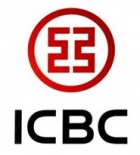Vietnam Supporting Industry: Challenges and Opportunities
04:51 | 16/06/2014
Vietnam Business Forum would like to introduce the following article written by Dr Vu Tien Loc, President of the Vietnam Chamber of Commerce and Industry (VCCI). Vietnam is inclined to restructure its economy and change its growth paradigm from extensive development into intensive development to gradually improve the economic quality and contribute to sustained social development. That reality poses a mixed blessing for Vietnam’s industry in general and supporting industries in particular. Tough challenges
According to statistics, in 2010, Vietnam's trade deficit with China reached US$12.7 billion, of which production materials accounted for 55 - 60 percent while machinery and equipment took up 22 - 25 percent. Clearly, support products are making up a considerable percentage of the trade deficit while supporting industries are still facing numerous difficulties.
First, supporting industries of Vietnam remain weak. According to the Ministry of Industry and Trade, supporting industries currently have to import nearly 80 percent of raw materials, spare parts and components. The localisation ratio - the rate of locally sourced components - of the automobile industry is just 5 - 10 percent, while for the motorcycle industry it is 40-70 percent. If this sector remains undeveloped, large foreign-invested manufacturing and assembling companies will leave Vietnam on default of local supplies.
Second, parts suppliers for foreign-invested companies are also foreign-invested. Vietnam has very little information about linkages of supporting industry or databases about companies specialising in supporting industries.
In addition, a wide gap exists in quality standards between domestic and foreign enterprises. And importantly, Vietnam’s supporting industry has not created value chains constituted by business linkages, even using financial or non-financial services to tap competitive advantages.
The Vietnam Textile and Apparel Association (Vitas) said the Vietnamese garment and textile sector earned US$6.16 billion from exports in the first six months of 2011, but it had to spend up to US$5.76 billion on imported materials, including nearly US$1.76 billion on production materials for domestic consumption and US$4 billion on materials for export production. Evidently, Vietnam’s supporting industry fails to meet development requirements and is facing many difficulties, especially in competing with foreign countries.
Plentiful opportunities
Fortunately, Vietnam’s supporting industry finds a lot of opportunities for development. Specifically, large foreign corporations have established manufacturing and assembling facilities in Vietnam and they very much expect to have more local parts suppliers to reduce transport costs and risks. Japanese companies indeed like to purchase products and components made in Vietnam. This will be the driving force for the development of Vietnamese supporting industries.
The third Vietnam - Japan Economic Forum accentuated a new wave of Japanese investors to Vietnam, seeking investment opportunities in both manufacturing industry and parts manufacturing. The presence of Japanese parts producers in Vietnam offers an opportunity for domestic enterprises to forge cooperation to acquire technologies and human resource training.
Markedly, Vietnam is joining global supply chains and value chains. When Vietnamese businesses supply products to a multinational corporation, these products will go global in its supply chain. This is a good opportunity for the survival and development of Vietnamese businesses.
Besides, enterprises and business organisations have arranged numerous seminars to discuss new solutions and opportunities to develop supporting industries. The Vietnam Chamber of Commerce and Industry (VCCI) has coordinated with Japan International Cooperation Agency (JICA), the Japan External Trade Organization (JETRO), and the Japan Economic Research Institute Inc (JERI) to promote the development of supporting industries in Vietnam. It has invited JICA specialists to engage in assisting companies in Ho Chi Minh City.
VCCI is collaborating with the United Nations Industrial Development Organization (UNIDO) to launch operations/services of the Subcontracting and Partnership Exchange Centre of Vietnam (SPX Vietnam). The centre has created a chance for businesses to assess operations and capacity, and to connect to assemblers, contractors and big business entities. This is a good instrument to promote the development of supporting industries in Vietnam that UNIDO hands to VCCI.
The Vietnamese supporting industry is confronting numerous difficulties and challenges. But, it is also seeing plenty of opportunities thanks to the Government’s effective economic development strategies and international support.
Vietnam Business Forum introduces ideas of experts about Vietnam’s supporting industries.
Mr Hirokazu Yamaoka, Chief Representative, JETRO Hanoi Office
Vietnam – Japan relationship has reached great achievements in terms of FDI. Large number of Japanese companies in Vietnam plan to expand their production this year according to JETRO’s survey conducted in the beginning of this March. Many Japanese companies operating in Japan and in China also want to transfer their production to Vietnam. Vietnam is still evaluated as a significant production base and an attractive market by Japanese investors so far.
To improve the competitiveness of Vietnam’s manufacturing industry and to further develop the country’s supporting industries as well as to meet demands of Japanese buyers for standardized accessories and equipment, Vietnamese manufacturing firms need to be equipped with modern machines and have skillful workforces to operate these machines. The requirements are big hindrances for Vietnam’s small and medium-sized enterprises (SMEs) who always face with lacks of capital or experienced technicians and professionals. We do hope that SMEs will be able to get support from the Vietnamese Government and have access to JICA’s assistance programs on vocational training and human resource development.
As a role of Japan’s trade and investment promotion agency in Vietnam, particularly as a bridge to connect Japanese manufacturers and assemblers and Vietnamese accessories makers in automobile, motorcycle, electric-electronics, mechanics fields etc., JETRO has taken annually in turns to hold “Vietnam-Japan Exhibitions on Supporting Industries” since 2004 to strengthen supporting industries development and improvement in Vietnam and to help local makers obtain valuable experience and technology transfer from Japan so that they can apply it in their own manufacturing fields.
Mr Le Gia Bao, Deputy Director of FC Hoa Lac Co., Ltd
Small-scaled supporting industries companies should join together in a group or association with win-win, suitable cooperation modes to meet big purchasing orders in time. They need to cooperate to enhance technical and production capacity and share resources. There is no need to offer customers low prices which will easily affect to products’ quality and time of delivery, resulting in a loss of reputation.
Mr Kimihiro Funatsu, Purchase Department Director of Honda Vietnam
To deal with changes in Vietnam’s macroeconomic situation, especially exchange rate and high production costs, Honda Vietnam is quickly increasing the rate of locally-made spare parts provided by suppliers in Vietnam. We have set up a new supply chain and hope that our local suppliers will focus on improving the competitiveness to catch up with Honda Vietnam’s new supply chain. and hope that our local suppliers will focus on improving the competitiveness to catch up with Honda Vietnam’s new supply chain.
Honda Vietnam has recently paid special attention to support its local suppliers to increase their business and production capacity in terms of sharing technologies and experienced experts. As a result, the quality and quantity of spare parts from our local suppliers have been ensured. We are still expecting closer business cooperation with Vietnamese suppliers in the future.
Các tin khác:
- Hanoi, Japanese firms join hands for aerospace component production (21/02/2024)
- Agreement inked to boost electronics manufacturing in Hanoi (08/12/2023)
- Opportunities for Hanoi businesses to join Boeing’s global supply chains (09/11/2023)
- Apple supplier Inventec to invest $125 mln in Vietnam’s capital city (15/09/2023)
- Capital city eyes $125m equipment manufacturing plant (15/09/2023)






